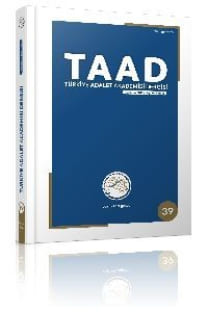Avrupa birliği kamu ihalesi hukukunda yeni bir ihale usulü: Rekabetçi müzakere usulü
2004/18/EC sayılı kamu ihale yönergesi, yeni bir ihale usulü olarak rekabetçi müzakere usulünü kabul etmiştir. Rekabetçi müzakere usulü “son derece karmaşık ihalelerde” yani idarelerce açık ihale usulü veya belli istekliler arasındaki ihale usulünün kullanılmasının ihalenin sonuçlandırılmasına olanak tanımayacağının düşünülmesi halinde başvurulabilecek bir ihale usulüdür. Rekabetçi müzakere usulü idarelerin yenilikçi çözümlere ulaşmalarını sağlamak amacıyla isteklilerle müzakere yapmalarına imkan tanır. Bu şekilde idareler, müzakere aşamasında kendi ihtiyaçlarını karşılayabilecek bir ya da daha fazla uygun alternatif çözümler yaratmak amacıyla veya birden fazla teknik çözümün olduğu ancak hangisinin idarenin ihtiyaçlarına cevap verebilecek en iyi çözüm olduğu hususunun tespiti amacıyla usule kabul edilen adaylarla müzakere yürütür. Rekabetçi müzakere usulü son derece karmaşık nitelik arzeden ihaleler açısından esnek bir yaklaşım geliştirilmesi için düşünüldüğünden bu usulün pazarlık ihale usulüne başvurulduğu durumlarda kullanılacağı değerlendirilmektedir. Bu çalışmada rekabetçi müzakere usulüne başvurabilmek için hangi koşulların gerekli olduğuna daha yakından bakılacaktır. Bilahare rekabetçi müzakere usulüne göre bir ihalenin nasıl sonuçlandırılacağı değerlendirilecektir.
NewTenderingprocedure in european union publicprocurement law:Competitive dilaogue
The Public Sector Directive 2004/18/EC introduces a new procurement procedure, the competitive dialogue. The competitive dialogue requires a “particularly complex” contract, where the contracting authority considers that the use of the open or restricted procedure will not allow the award of the contract. Competitive dialogue allows contracting authorities to negotiate with bidders to reach innovative solutions. The dialogue phase enables the contracting authority to have discussions with bidders with the aim of identifying and defining the alternative means best suited to meet the contracting authority’s needs. As the competitive dialogue aims to provide a flexible approach to the award of complex contracts, it seems to take a place where formerly mainly the negotiated procedure has been in use. In this paper, I will take a closer look on the prerequisites which have to be fulfilled to enter the competitive dialogue. Afterwards, I will evaluate how the competitive dialogue procedure is to be conducted.
___
- ARROWSMITH Sue, The Law of Public and Utilities Procurement, 2nd edition, Sweet & Maxwell, London, 2005, 10.1, s.629.
- BROWN Adrian, “Grounds for failing to advertise a contract for a conveyor-belt system: a note on C-394/02 Commission v Greece”, Public Procurement Law Review, 2005(c), 5, NA111-113, s.NA 112.
- CIARA Kennedy-Loest, “What can be done at the preferred bidder stage in competitive dialogue?”, Public Procurement Law Review, 2006, 6, 316-326, s.318.
- HENTY Paul, “OGC consultation on the implementation of the new Remedies Directive”, Public Procurement Law Review, 2009, 1NA, s. 50.
- TREUMER Steen, “The field of application of competitive dialogue”, Public Procurement Law Review, 2006(b), 6, 307-315, s.310.
- WILLIAMS Rhodri, “The new Procurement Directives of the European Union Public Procurement Law Review, Public Procurement Law Review, 2004, 4, s. 153-159, s.156-157.
- WILLIAMS Rhodri, “The Commission’s explanatory notes”, Public Procurement Law Review, 2006(a), 4, s. NA109-118, s. NA110.
- WILLIAMS Rhodri, “The Commission’s explanatory notes”, Public Procurement Law Review, 2006(a), 4, NA109-118, s. NA110.
- WILLIAMS Rhodri, “The Commission’s proposal for a new Remedies Directive”, 2006(b), 5 NA Public Procurement Law Review, s. 141-144.
- ISSN: 1309-6826
- Başlangıç: 2010
- Yayıncı: Türkiye Adalet Akademisi
Sayıdaki Diğer Makaleler
İnsan haklarının korunması kapsamında yasa dışı organ veya doku naklinin Türk hukukuna yansımaları
Avrupa birliği kamu ihalesi hukukunda yeni bir ihale usulü: Rekabetçi müzakere usulü
Kabahatler kanunu’nun genel hükümlerinin vergi kabahatleri bakımından uygulanabilirliği
Elektronik ortamda haksız rekabet
Yarı başkanlık sistemlerinde devlet başkanını ön plana çıkaran unsurlar - fransa örneği ve Türkiye
Çevre ve hukuk perspektifinden Hidroelektrik santrallere ilişkin bazı tespitler
